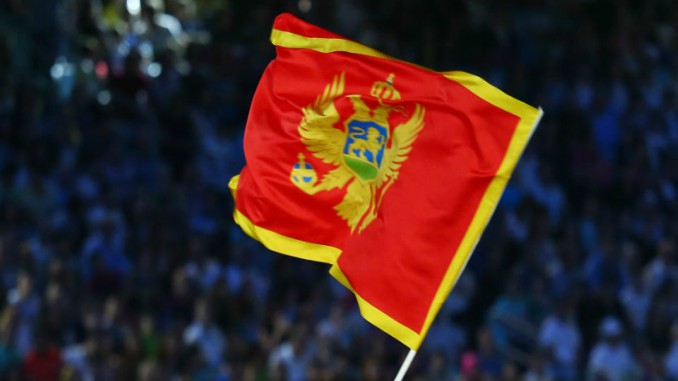
Just one day before President Donald Trump and NATO Secretary General Jens Stoltenberg met in Washington, the North Atlantic alliance came one big step to gaining its first new member in eight years: Montenegro.
“The United States will work to further strengthen our already strong relationship with Montenegro, and looks forward to formally welcoming the country as the twenty-ninth member of the NATO Alliance,” White House press secretary Sean Spicer said Tuesday, shortly after Trump signed off on the near-unanimous Senate consent for the tiny Balkan state to join the world’s biggest alliance.
Trump apparently had a change of heart as to the utility of NATO. On Wednesday, at a joint press conference, the U.S. president said of the alliance, “I said it was obsolete. It’s no longer obsolete.” He reiterated, however, that NATO partners need to increase their spending and “not rely on the U.S. to make up the difference.”
“The U.S. approval for Montenegro’s accession to NATO is also recognition for all of the hard work and reforms Montenegro implemented during the rigorous process of integration to the Alliance, which proves that the membership is open to countries that share the common values and are willing to meet the criteria,” Montenegro’s ambassador, Nebojsa Kaluderovic, said in an email to Foreign Policy.
The United States was one of the last of the 28 NATO members to approve the addition of Montenegro to the group; the Balkan country now just waits on Spain’s approval. (Though Spain’s parliament approved Montenegro’s bid, leftist parties fear provoking Russia’s wrath through an expansion of the Western alliance.)
Assuming Madrid consents, Montenegro will join the other NATO members at a summit in May — and will brace itself for the response from Russia. Moscow has long been opposed to Montenegro’s accession, as it has long opposed to NATO expansion, which it views as a provocation.
Montenegro, for its part, believes Russia was already taking action, blaming it for a failed coup attempt last October. (Russia denies that.) “Russia has a long track record of expressing its opposing views about NATO expansion including Montenegrin membership, and in this case acted in an unprecedented way,” Kaluderovic said.
But what’s less clear is whether, and how, Russia might respond. As seen in Moscow’s efforts to influence politics and public opinion across Europe, tanks and howitzers aren’t needed to push back against countries that step out of line.
In late March, during the same week that Montenegro got the U.S. Senate’s overwhelming approval for NATO membership, Serbian Prime Minister Aleksandar Vucic and Russian President Vladimir Putin agreed on their first arms deal since 2013. Montenegro gained independence from Serbia in 2006.
Just being under the NATO umbrella may offer protection from a full-on assault, but doesn’t provide any shield from other Russian efforts at destabilization. In 2007, Russia launched a major cyberattack on Estonia’s banks and government. Since then it has unleashed a campaign of hacking, disinformation, and “astroturf” political agitation meant to sow dissent among its former Baltic dependencies, NATO members all.
Montenegro may now be in the club, but will be vying with Albania for NATO’s least-impressive military. It has about 2,000 soldiers, but no air force, no coast guard, and no military academy. But joining NATO, said foreign minister Srdjan Darmanovic last month, is the decision the country made when it decided to become independent.
And it’s a decision that the U.S. government apparently think benefits the United States, too. As Trump’s letter noted, Montenegro’s accession will not increase American spending obligations. Some lawmakers went further still. Sen. John McCain (R.-Ariz.) said that, far from inviting a collision with Russia, Montenegro’s accession is critical for resisting it.
“The behavior on the part of the Russians throughout the region and the world is not acceptable in these times,” McCain said.
Kaluderovic agrees. “Our impending accession shows that our future is in our hands.”
Source: Foreign Policy